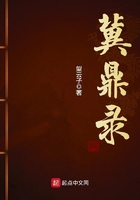When once kings, who had hitherto been bound to die a violent death at the end of a term of years, conceived the happy thought of dying by deputy in the persons of others, they would very naturally put it in practice; and accordingly we need not wonder at finding so popular an expedient, or traces of it, in many lands. Scandinavian traditions contain some hints that of old the Swedish kings reigned only for periods of nine years, after which they were put to death or had to find a substitute to die in their stead. Thus Aun or On, king of Sweden, is said to have sacrificed to Odin for length of days and to have been answered by the god that he should live so long as he sacrificed one of his sons every ninth year. He sacrificed nine of them in this manner, and would have sacrificed the tenth and last, but the Swedes would not allow him. So he died and was buried in a mound at Upsala. Another indication of a similar tenure of the crown occurs in a curious legend of the deposition and banishment of Odin. Offended at his misdeeds, the other gods outlawed and exiled him, but set up in his place a substitute, Oller by name, a cunning wizard, to whom they accorded the symbols both of royalty and of godhead. The deputy bore the name of Odin, and reigned for nearly ten years, when he was driven from the throne, while the real Odin came to his own again.
His discomfited rival retired to Sweden and was afterwards slain in an attempt to repair his shattered fortunes. As gods are often merely men who loom large through the mists of tradition, we may conjecture that this Norse legend preserves a confused reminiscence of ancient Swedish kings who reigned for nine or ten years together, then abdicated, delegating to others the privilege of dying for their country. The great festival which was held at Upsala every nine years may have been the occasion on which the king or his deputy was put to death. We know that human sacrifices formed part of the rites.
There are some grounds for believing that the reign of many ancient Greek kings was limited to eight years, or at least that at the end of every period of eight years a new consecration, a fresh outpouring of the divine grace, was regarded as necessary in order to enable them to discharge their civil and religious duties. Thus it was a rule of the Spartan constitution that every eighth year the ephors should choose a clear and moonless night and sitting down observe the sky in silence. If during their vigil they saw a meteor or shooting star, they inferred that the king had sinned against the deity, and they suspended him from his functions until the Delphic or Olympic oracle should reinstate him in them. This custom, which has all the air of great antiquity, was not suffered to remain a dead letter even in the last period of the Spartan monarchy; for in the third century before our era a king, who had rendered himself obnoxious to the reforming party, was actually deposed on various trumped-up charges, among which the allegation that the ominous sign had been seen in the sky took a prominent place.
If the tenure of the regal office was formerly limited among the Spartans to eight years, we may naturally ask, why was that precise period selected as the measure of a king's reign? The reason is probably to be found in those astronomical considerations which determined the early Greek calendar. The difficulty of reconciling lunar with solar time is one of the standing puzzles which has taxed the ingenuity of men who are emerging from barbarism. Now an octennial cycle is the shortest period at the end of which sun and moon really mark time together after overlapping, so to say, throughout the whole of the interval. Thus, for example, it is only once in every eight years that the full moon coincides with the longest or shortest day; and as this coincidence can be observed with the aid of a simple dial, the observation is naturally one of the first to furnish a base for a calendar which shall bring lunar and solar times into tolerable, though not exact, harmony. But in early days the proper adjustment of the calendar is a matter of religious concern, since on it depends a knowledge of the right seasons for propitiating the deities whose favour is indispensable to the welfare of the community. No wonder, therefore, that the king, as the chief priest of the state, or as himself a god, should be liable to deposition or death at the end of an astronomical period. When the great luminaries had run their course on high, and were about to renew the heavenly race, it might well be thought that the king should renew his divine energies, or prove them unabated, under pain of making room for a more vigorous successor. In Southern India, as we have seen, the king's reign and life terminated with the revolution of the planet Jupiter round the sun. In Greece, on the other hand, the king's fate seems to have hung in the balance at the end of every eight years, ready to fly up and kick the beam as soon as the opposite scale was loaded with a falling star.
Whatever its origin may have been, the cycle of eight years appears to have coincided with the normal length of the king's reign in other parts of Greece besides Sparta. Thus Minos, king of Cnossus in Crete, whose great palace has been unearthed in recent years, is said to have held office for periods of eight years together. At the end of each period he retired for a season to the oracular cave on Mount Ida, and there communed with his divine father Zeus, giving him an account of his kingship in the years that were past, and receiving from him instructions for his guidance in those which were to come. The tradition plainly implies that at the end of every eight years the king's sacred powers needed to be renewed by intercourse with the godhead, and that without such a renewal he would have forfeited his right to the throne.















